Dandelions are perennial weeds that can produce up to 15,000 seeds per plant, making them very difficult to kill. It is, therefore, essential to act fast and kill these weeds before they take over your yard. Knowing the best time to spray dandelions can help you manage them and keep your lawn weed-free.
Ideally, the best time to spray dandelions is in the fall, after they have bloomed and just before they germinate. During this time, dandelions transport carbohydrates from the leaves to the roots to prepare for winter. Therefore, the herbicide will be transported to the roots alongside the sugars, thus killing the roots effectively.
Below, we have discussed the best time to spray dandelions and the most effective herbicides. Read on to learn more.
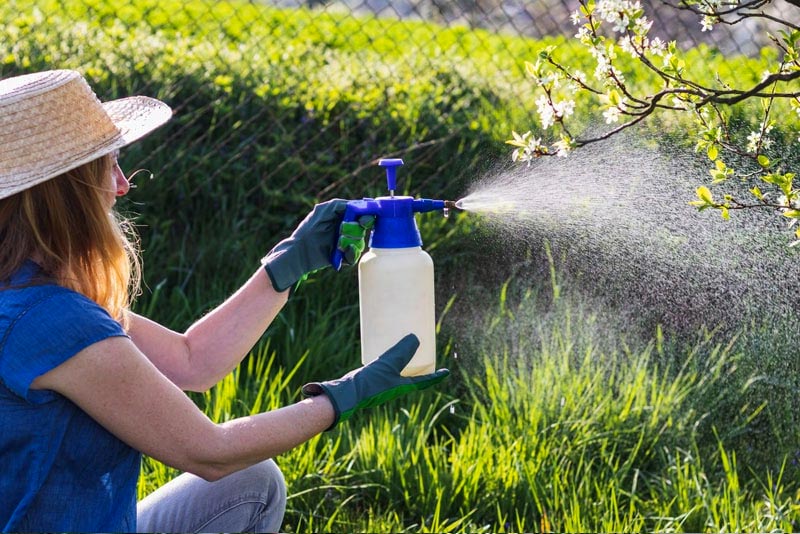
What we cover
ToggleWhen should you spray dandelions?
Dandelions are weakest right after blooming in spring. They shed their leaves in the fall to preserve water and sugar. This is why spraying the weeds after they bloom and before the seeds germinate is best.
However, it can be challenging to time the plant after it flowers but just before it starts releasing its seeds. It may be too late if you miss this timing, as the wind may have already carried the seeds.
You can stay proactive by spraying the dandelions when they are about two weeks old. Young dandelions tend to respond well to weed killers.
When is it too late to spray dandelions?
Late fall or winter. This is because dandelions shed their leaves in the fall to preserve water and carbohydrates, so there will be no foliage to spray on. In winter, dandelions are dormant. Thus, it will be useless to spray them.
Spring is also not a good time to spray dandelions, as they tend to be well-rooted after regrowth. This makes it difficult to kill them.
If you choose to spray the weeds in the spring, do it when the temperatures are above 60 °F.
What time of day is best to spray dandelions?
The ideal time of day to spray these weeds depends on the temperature, moisture level, and sun exposure of the region.
Warm climate
If you live in a warm region, it is best to apply the herbicide in the early mornings and late afternoons. During this time, the temperature is moderate; thus, the herbicide will absorb directly into the plant’s leaves.
If you spray the herbicide when the temperatures are too high, it may evaporate too fast, preventing optimal absorption into the plant’s foliage.
Cool climate
In cool climates, the moisture levels tend to be high in the mornings and evenings. This can cause runoff or dilution of the herbicide, preventing maximum absorption by the dandelion. So, it is best to apply the weed killer in the late mornings or early evenings, after the excess moisture has evaporated.
What is the best temperature to spray dandelions?
Generally, it is best to spray dandelions when the temperatures are more than 60 °F and the plant is actively growing. Also, you should spray dandelions on a dry, calm day, and there should be no rain for at least 48 hours.
Avoid spraying the weeds in direct sunlight to reduce or prevent the herbicide from evaporating.
Can I spray dandelions after it rains?
It is not recommended to spray dandelions right after it has rained. This is because the moisture level may be high and cause dilution or runoff of the herbicide.
If you are using a systemic herbicide, the active ingredient should be absorbed into the plant’s foliage, so it is best to spray when the weather is dry.
You should not spray the dandelions on a windy day either, as the wind may carry the herbicide away to nearby water bodies or plants.
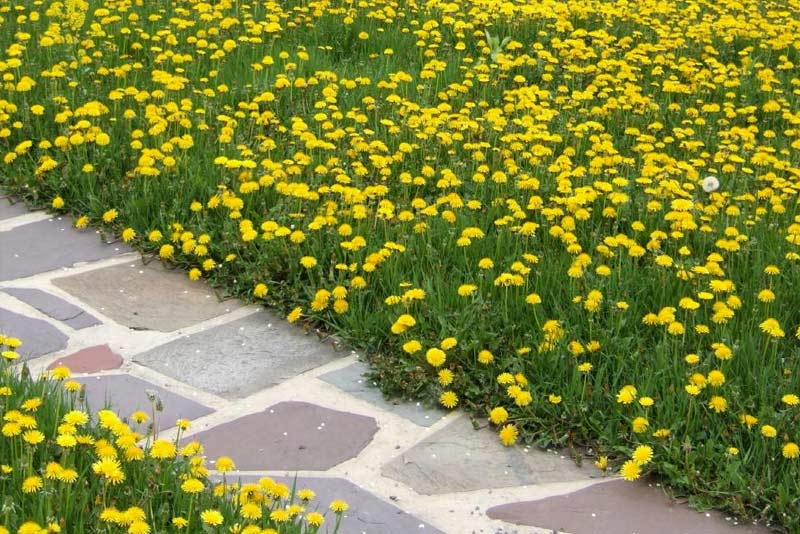
Should I spray dandelions before or after mowing?
No, it is not recommended to spray dandelions after mowing. This is because systemic broadleaf herbicides are most effective when sprayed directly on foliage.
You should not mow your lawn five days prior to applying the herbicide to ensure there is enough foliage for optimum absorption of the herbicide. Besides, cut grass tends to be weak and can be vulnerable to damage, even by selective weed killers.
You should also avoid mowing your lawn for at least 48 hours after applying the systemic weed killer to allow enough contact with the leaves.
What weed killer can I use to kill Dandelions?
There are many broadleaf weed killers on the market that you can use to kill dandelions and other common weeds, such as spurge and clover. The two main categories of herbicides are:
- Pre-emergent weed killers
- Post-emergent weed killers
Pre-emergent weed killer
Pre-emergent weed killers disrupt the plant’s germination and growth process. The best time to apply pre-emergent herbicides for Dandelions is after mowing your lawn. Here is a simple guide for applying this herbicide:
- Select liquid or granular pre-emergent weed killer.
- Apply the herbicide directly to the lawn’s surface after mowing.
- Water your yard for at least 3 weeks to activate the active ingredients of the weed killer.
- Apply the herbicide in the fall or early winter before the weeds start growing. This hinders germinating in the spring.
Post-emergent weed killer
Post-emergent herbicides can be applied in late spring when the weeds are actively growing. The herbicide should be applied before mowing, and it comes in two categories:
- Non-selective herbicide
- Selective herbicide
Non-selective herbicide
Non-selective herbicides are ideal for general use around your home. They kill every plant they come across; hence, they should not be used on lawns.
The best-performing non-selective herbicides include:
The active ingredients in non-selective weed killers include:
- Diquat
- Glyphosate
- Flufenacet
- mecoprop-P
Selective herbicide
Selective weed killers are designed to target and kill specific weeds without harming grass or other plants.
Some of the best selective weed killers on the market include:
The active ingredients in selective weed killers include:
- 2,4-D
- MCPA
- Dicamba
- Fluroxypyr
- Clopyralid
Best dandelion killer that won’t kill grass
Here are a few options if you are looking for the best dandelion killer that will not kill grass.
You can also use organic dandelion killers such as Eco Garden Pro Organic Vinegar Weed Killer or Espoma Organic Weed Preventer.
Most common ways to get rid of dandelions
There are 3 ways you can get rid of the dandelions in your yard. These include:
Digging them up by hand
If you have just a few dandelions in your yard, you can dig them out by hand. You can do this by digging large holes around the weeds and plucking them out by hand. You will, however, need to repair the holes after pulling out all the weeds.
Plucking out the dandelions by hand ensures they do not come back again. However, established dandelions can be hard to remove by hand as the tap roots may have stretched far into the ground.
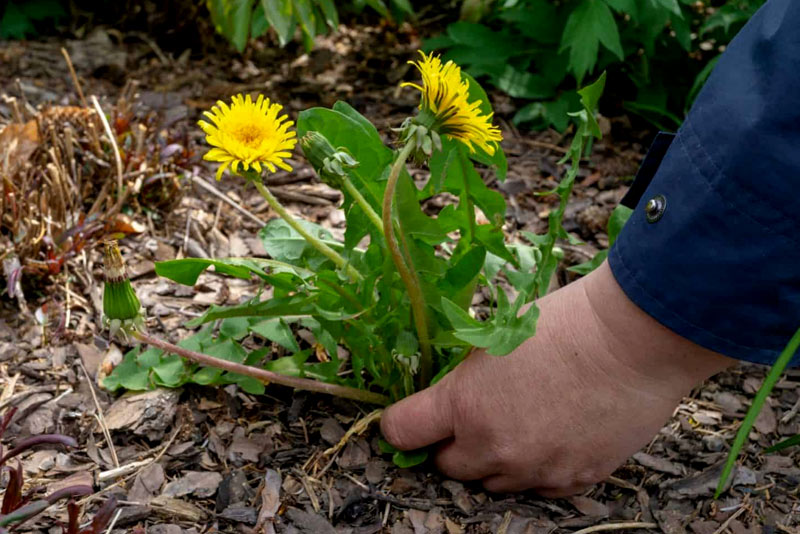
Using post-emergent weed killer
Using post-emergent weed killers is the best way to remove dandelions. Spot-spraying the 2-4 D herbicides kills the dandelions in just a few days. More so, you will not have to repair or refill holes in your yard, as no hand-plucking will be done.
Post-emergent herbicides will eliminate all dandelions, including their seeds. The dandelions may never return unless new seeds blow in from your neighbor’s yard.
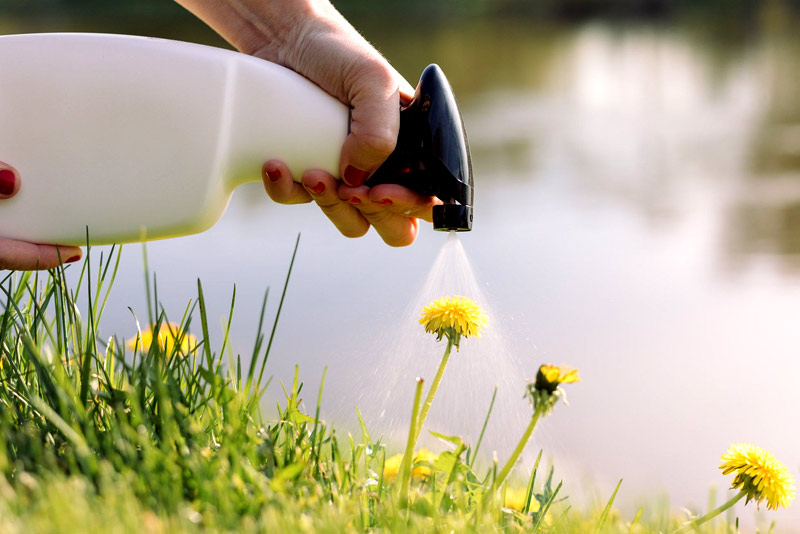
Going traditional
If you do not want to use any of the above methods, you can kill the dandelions the traditional way. This involves pouring boiling water or horticultural vinegar on the dandelions to kill them. You can also use salt to kill these weeds.
However, these methods also kill the grass and can damage the soil structure. So, it may take some time for grass to grow back in the areas where the dandelions once grew.
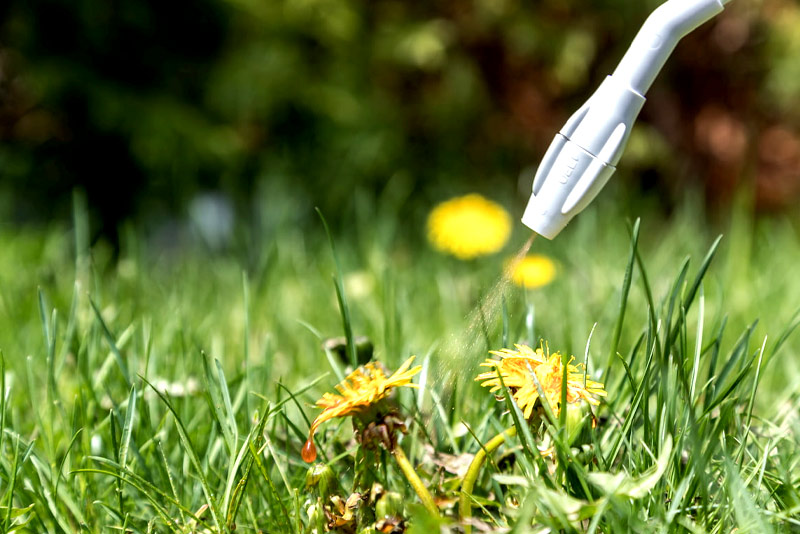
FAQ's
It is essential to follow the instructions written on the bottle. Usually, spraying dandelions once is enough to kill them. If they do not die, spray again after 5 to 7 days. If your lawn is prone to weeds, you may need to thicken it up by dethatching, aerating, fertilizing, overseeding, and mowing.
Yes, dandelions will grow back after mowing. It is, therefore, essential to destroy the developing flowers before they mature and start distributing seeds.
No. The herbicide will kill the dandelions, but they can grow back. While you may be proactive in keeping your lawn free of dandelions, your neighbor may not. Therefore, dandelion seeds may still find their way to your yard and take root. Regular lawn care and maintenance will keep the weeds away and ensure your lawn is healthy throughout the year.
